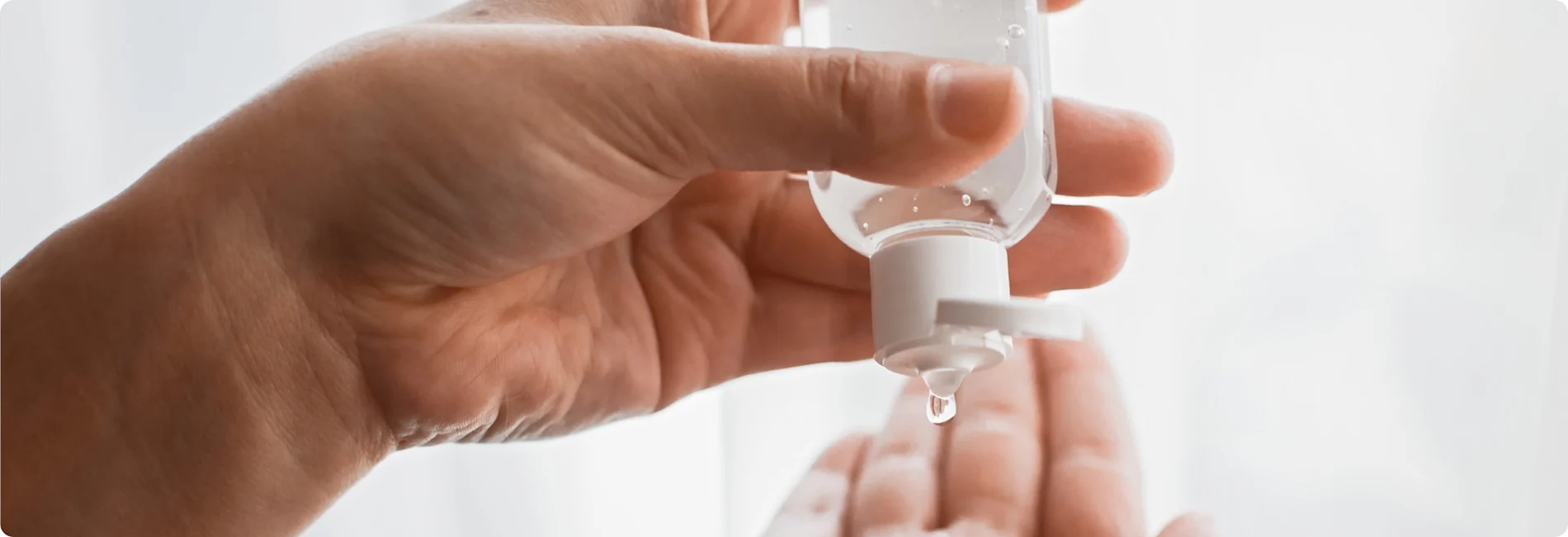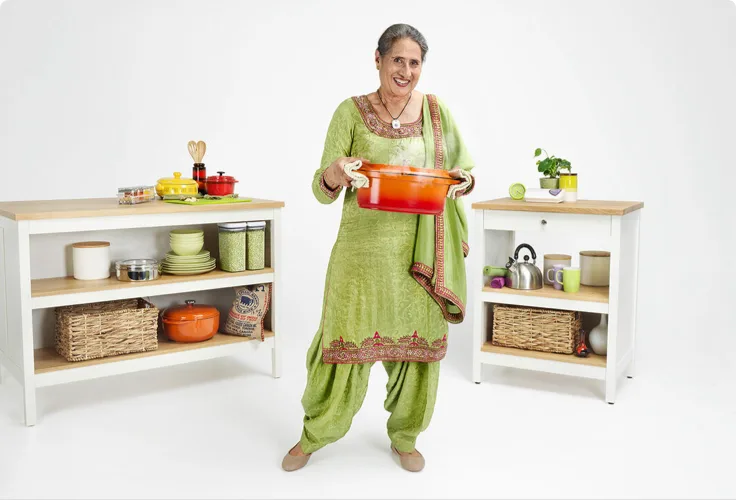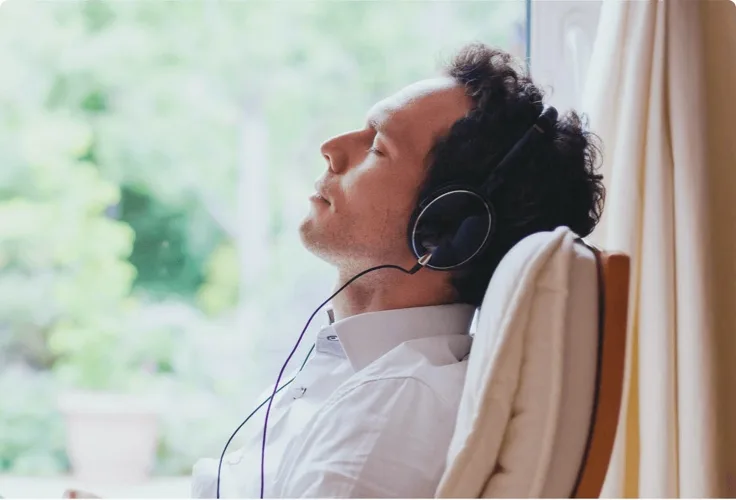Keep Calm and Carry Hand Sanitizer
COVID-19 · Mar 13, 2020
Many of us are sensitive, to some degree, about exposure to germs in public spaces. This is particularly true when using public transit or when someone nearby coughs or sneezes without covering their mouth. However, with the declaration of a world-wide pandemic related to a highly infectious virus for which there is currently no community immunity or vaccine, most of us are concerned about our own welfare and that of our family, friends and fellow citizens.
Exacerbating these concerns is the often-alarming news being widely shared about COVID-19. Below, you will find some suggestions to help you manage this overwhelming amount of information and keep yourself and your loved ones safe and healthy.
1. Obtain your COVID-19 news from reputable sources
Avoid obtaining medical advice from questionable or unauthorized sources, such as Twitter or podcasts, because Joe Rogan might be fun to listen to, but recommending probiotics as a protection for COVID-19 is nonsense and not based on scientific facts. It’s best to refer to the Government of Canada’s public health resource for accurate details.
Urge your family, friends and neighbors to do the same. A lack of accurate information is fertilizer for little-known infectious diseases such as COVID-19.
2. We know a great deal now
While we don’t yet have all the answers regarding COVID-19, we have an opportunity to learn from other countries that have a great deal of experience with the virus. For instance, we know, based on the hundreds of thousands of cases recorded internationally, that many children and some adults who are infected have very mild symptoms or none at all.
We now know this virus can spread from people who don’t know they are infected (called asymptomatic carriers), so we must enforce social distancing (meaning keeping at least two meters away from others) for all ages. While no one is exempt from this rule, it is especially essential to protect those over the age of 60 and those with compromised immune systems or other chronic medical illnesses.
We know that this virus is highly infectious, even more so than the flu. Social distancing and completely avoiding handshakes and hugs, is essential at this time. Say hello from a distance or, for the groovy amongst us, a peace sign is always welcome.
We also know the virus can live on surfaces for at least a few hours and likely for several days. This means we should wash our hands frequently, especially when we are in high-traffic areas, such as public transit or shopping areas. For the health and safety of every Canadian, if you do not need to go out, PLEASE STAY AT HOME!
Don’t panic if you can’t get your hands on masks at your local pharmacy. They do not prevent spread of the virus, except to keep infected people from dispersing viral droplets when they cough or sneeze. Those who are ill MUST say home, and if you cough or sneeze, do it into your hand or elbow and wash your hands immediately. In the absence of testing availability, if you have any cold or flu like symptoms please assume you are infected and isolate yourself.
3. Control what you can control
One of the most troubling feelings many of us are currently experiencing is a lack of control. As the number of infected individuals is increasing around the world, you aren’t alone if you’re feeling like a sitting duck, uncertain of the best way to protect yourself and your family.
The best way to manage uncertainty is to determine what you can control and focus your energy on those factors. For instance, we know that hand washing with soap or 60% alcohol hand sanitizer for 20 seconds and 2 meter (6.5 feet) social distancing are the most effective tools for preventing the spread of the virus.
We do not yet have a vaccine or a specific treatment for COVID-19, but we are still in flu season, so it’s important for everyone to have a flu shot, which is available at many pharmacies, to prevent illnesses that might require a doctor’s visit.
Our healthcare services are going to be stretched to the limit, so everything we can do to stay well is essential. Use virtual care options for primary healthcare if your doctor in unable to provide care over the phone. Importantly, avoid urgent care unless the issue is truly urgent. The way to be sure whether you should go to urgent care is to check with your family doctor, call 811 for provincial guidance, or use a virtual healthcare App.
4. We, as a society, are judged by how we care for the most vulnerable among us
The greatest concern related to COVID-19 is for the most vulnerable individuals in our communities, including the elderly, especially those with health problems or compromised immune systems and serious chronic illnesses, such as diabetes or heart disease.
If you have elderly or chronically ill family members or neighbours, it’s time to work out a plan to pick up their groceries or offer them a drive to keep them off mass transit and away from crowds. Urge them not to venture out unless it’s absolutely necessary.
While you’re picking up those groceries, think of those who cannot afford to stock up and throw a few dollars into the food bank bucket. In fact, nothing makes us feel better than when we are able to help others.
5. Take care of yourself
An essential aspect of maintaining calm is self-care. That includes keeping physically active, eating healthy food, getting as much sleep at you can, and taking time to have a relaxing bath, read a book, or whatever it is that brings you joy. Even a twenty minute break can refuel when we’re feeling depleted. Unfortunately, it is often those things that help us to feel more calm and in control that are the first to go out the window at times of crisis. If you’re not functioning well, those who rely on you won’t do well either. It isn’t selfish to take time to care for yourself – it’s necessary and productive.
6. TELUS is working hard for all Canadians.
We are actively increasing virtual care resources to keep people out of doctor’s offices and away from urgent care centres and ERs. When people become frightened they may flock to healthcare centres, which are quickly overwhelmed. Also, there’s no better place to get sick than in a hospital or doctor’s waiting area! With our range of virtual care solutions, including Akira by TELUS Health, it is easy to turn to healthcare professionals who will be able to offer guidance if there is a need for a COVID-19 testing or with other healthcare needs.
Please be sure to care for yourself as well.
Dr. Diane



